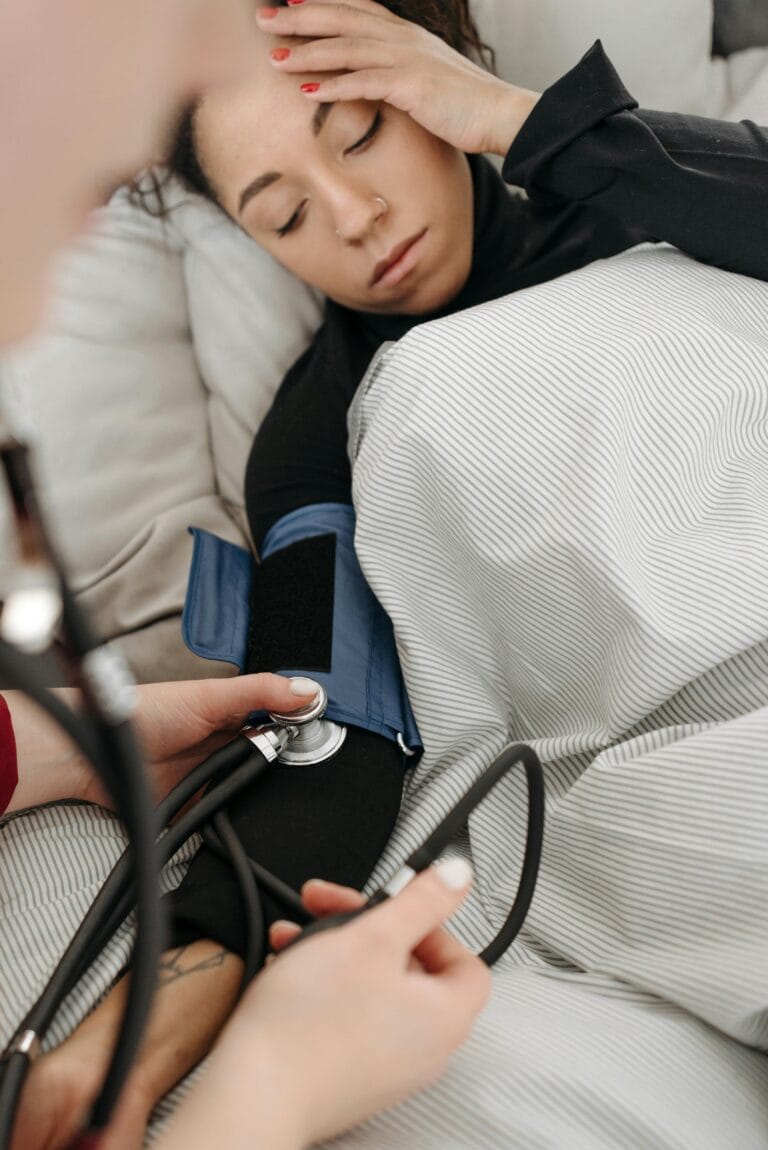FREE SHIPPING OVER $50
Urgent Liver Alert: This Common Supplement Is Secretly Damaging Your Liver (Doctors Reveal Why You MUST Stop!)
You’re health-conscious. You read up on the latest trends, listen to wellness gurus, and strive to do what’s best for your body. If you’re like millions of people looking to boost their health naturally, you’ve probably welcomed turmeric supplements into your daily routine. Heralded for their incredible anti-inflammatory and antioxidant powers, turmeric seems like the ultimate natural fix for everything from joint pain to general well-being.
But what if a common supplement so widely praised is hiding a dangerous secret? What if, despite its reputation, it’s secretly damaging your liver? This isn’t a drill. This is a problem that doctors are increasingly raising as they see a concerning rise in cases. They’re revealing a truth that might make you pause, consider your supplement cabinet, and understand why you must stop if you’re taking specific forms of this popular product.
The Turmeric Paradox: From Spice Rack to Health Risk

For centuries, turmeric has been a staple in South Asian cuisine and traditional medicine. Its vibrant yellow color comes from compounds called curcuminoids, with curcumin being the most active and studied. In its whole-food form, as a spice, turmeric is widely considered safe and beneficial, contributing flavor and subtle health advantages.
However, the modern supplement industry has transformed turmeric. Instead of the whole root, many turmeric supplements contain highly concentrated, isolated curcumin extracts. These often boast “enhanced bioavailability,” meaning your body absorbs more of the curcumin, frequently aided by ingredients like black pepper extract (piperine). The idea is that more curcumin equals more benefits.
And this is where the paradox begins. While curcumin has impressive properties, the jump from culinary use to high-dose, isolated supplement form changes the game. What’s beneficial in moderation from food can become problematic in concentrated, unregulated doses. This rapid and often uncontrolled absorption is a major concern for doctors when it comes to liver health.
The Turmeric Supplement Liver Connection
Recent medical reports and studies are painting a clearer, and frankly, alarming picture: turmeric supplements are increasingly being identified as a cause of drug-induced liver injury (DILI). This isn’t just anecdotal; doctors are seeing patients present with unexplained liver damage, and a common thread in many cases points directly to turmeric supplements.
It’s critical to understand that this warning primarily applies to turmeric supplements in pill or capsule form, often containing concentrated curcumin and sometimes piperine for increased absorption. It’s not about adding a spoonful of turmeric powder to your curry!
Why are doctors specifically pointing the finger at turmeric supplements for liver damage?
- Idiosyncratic Reactions: This is the most common reason. “Idiosyncratic” means the reaction is unpredictable and not dose-dependent; it happens to certain individuals for reasons not fully understood. Your body might react uniquely to the high concentration of curcumin, triggering an inflammatory response in the liver that leads to injury.
- High Concentrations of Curcumin: While curcumin is beneficial, the sheer amount in some supplements far exceeds what you’d ever consume through food. Our livers are powerful detoxifiers, but continuous bombardment with high levels of any compound, even a “natural” one, can overwhelm its capacity.
- Quality Control Issues & Adulteration: The supplement industry is notoriously less regulated than pharmaceuticals. Some turmeric supplements might contain contaminants, unlisted ingredients, or even higher levels of curcumin than stated on the label. This makes it impossible to predict their effects.
- Interactions with Medications: Turmeric/curcumin can interact with various medications, including blood thinners, antacids, and drugs metabolized by the liver. These interactions can either amplify the effects of the medication (leading to side effects) or increase the strain on the liver, making it more susceptible to damage.
- Piperine’s Role: While piperine (black pepper extract) is added to boost curcumin absorption, it can also increase the absorption of other compounds, potentially including toxins or other medications, further burdening the liver.
Symptoms to Watch For: Signs of Liver Distress
- Unexplained Fatigue: Persistent tiredness or lethargy that isn’t relieved by rest.
- Nausea, Vomiting, or Loss of Appetite: Digestive distress that doesn’t seem linked to other causes.
- Abdominal Pain or Discomfort: Especially in the upper right side of your abdomen, where your liver is located.
- Dark Urine: Urine that appears darker than usual, like strong tea or cola.
- Jaundice (Yellowing of Skin or Eyes): This is a classic and serious sign of liver dysfunction, indicating bilirubin buildup.
- Pale Stools: Stools that are clay-colored or very light, indicating issues with bile production or flow.
- Itchy Skin: Persistent, unexplained itching all over the body.
- Easy Bruising or Bleeding: The liver produces clotting factors, so damage can impair this function.
What Doctors Advise and What’s Next
Given the emerging evidence, doctors are taking a more cautious stance on high-dose turmeric supplements, especially for individuals at higher risk. Their core message is clear that you must stop taking the supplement if you experience any symptoms of liver damage or if your doctor advises it.
Here’s what medical professionals typically recommend:
- Discontinue Immediately if Symptoms Appear: If you notice any of the warning signs of liver damage, stop taking turmeric supplements and any other new supplements you’ve recently introduced.
- Consult Your Doctor: Schedule an appointment with your healthcare provider right away. They will likely perform blood tests (liver function tests, or LFTs) to assess your liver health. Be completely transparent about all supplements and medications you are taking.
- Review All Supplements with Your Doctor: This incident should serve as a crucial reminder to discuss all vitamins and supplements you take with your doctor. They can help identify potential interactions or risks based on your health profile and other medications.
- Focus on Whole Foods: Instead of relying on concentrated supplements, prioritize getting nutrients from a balanced diet rich in whole foods. For turmeric, this means enjoying it as a spice in your cooking.
- Address Underlying Health Conditions: If you have pre-existing liver conditions, autoimmune diseases, or are on medications that affect the liver, you are at a higher risk and should be extra cautious with all supplements.
Protecting Your Liver: Smart Supplement Choices & Whole Foods
Your liver is a powerhouse organ, performing hundreds of vital functions, including detoxification. Protecting it is paramount for your overall health and well-being.
- Research Thoroughly: Don’t assume “natural” means “safe.” Always research supplements and look for reputable brands that provide third-party testing for purity and potency.
- Less Is Often More: Avoid the temptation of megadoses. Your body can only utilize so much of a given nutrient, and excessive amounts can be harmful.
- Diet First: Prioritize getting your nutrition from food. A diet rich in fruits, vegetables, whole grains, lean proteins, and healthy fats provides a synergistic array of nutrients that support liver health and overall well-being.
- Be Skeptical of “Miracle Cures”: If a supplement promises dramatic, unrealistic results, approach it with caution.
- Trust Your Gut (and Your Doctor): If something feels off or if you experience unusual symptoms after starting a new supplement, stop taking it and consult a medical professional. Your doctor is your best resource for personalized health advice.
By staying informed, listening to medical warnings, and making thoughtful choices about your body, you can proactively protect your liver and safeguard your long-term health. Your liver works tirelessly for you – return the favor by giving it the care it deserves.
Related Articles
- Brain Fog Breakthrough: The Shocking B12 Deficiency Link Doctors Say Is Stealing Your Memory!
- Youth-Stealing Supplements: 3 You Must Avoid Because They Secretly Age Your Skin!
- Unlock Max Bone Strength: Scientists Pinpoint The Optimal Time to Take Your Calcium Supplement
- Unlock Your Inner Calm: The 5 “Hidden” Powers of Ashwagandha Elite Wellness Experts Swear By (Stress-Proof Your Life!)
- STOP Wasting Money: Dieticians Reveal the ONLY 5 Supplements Truly Worth Your Investment!







